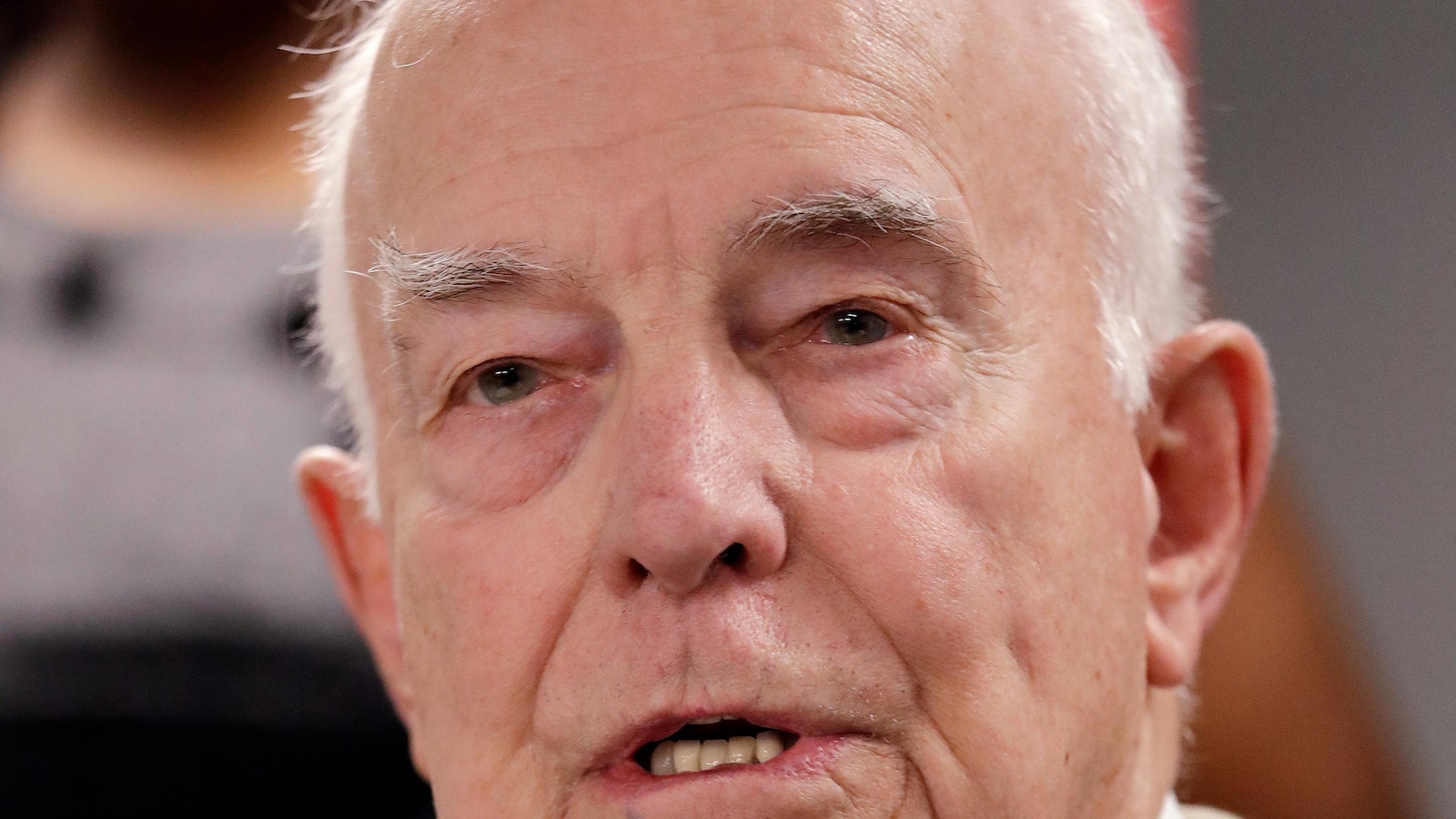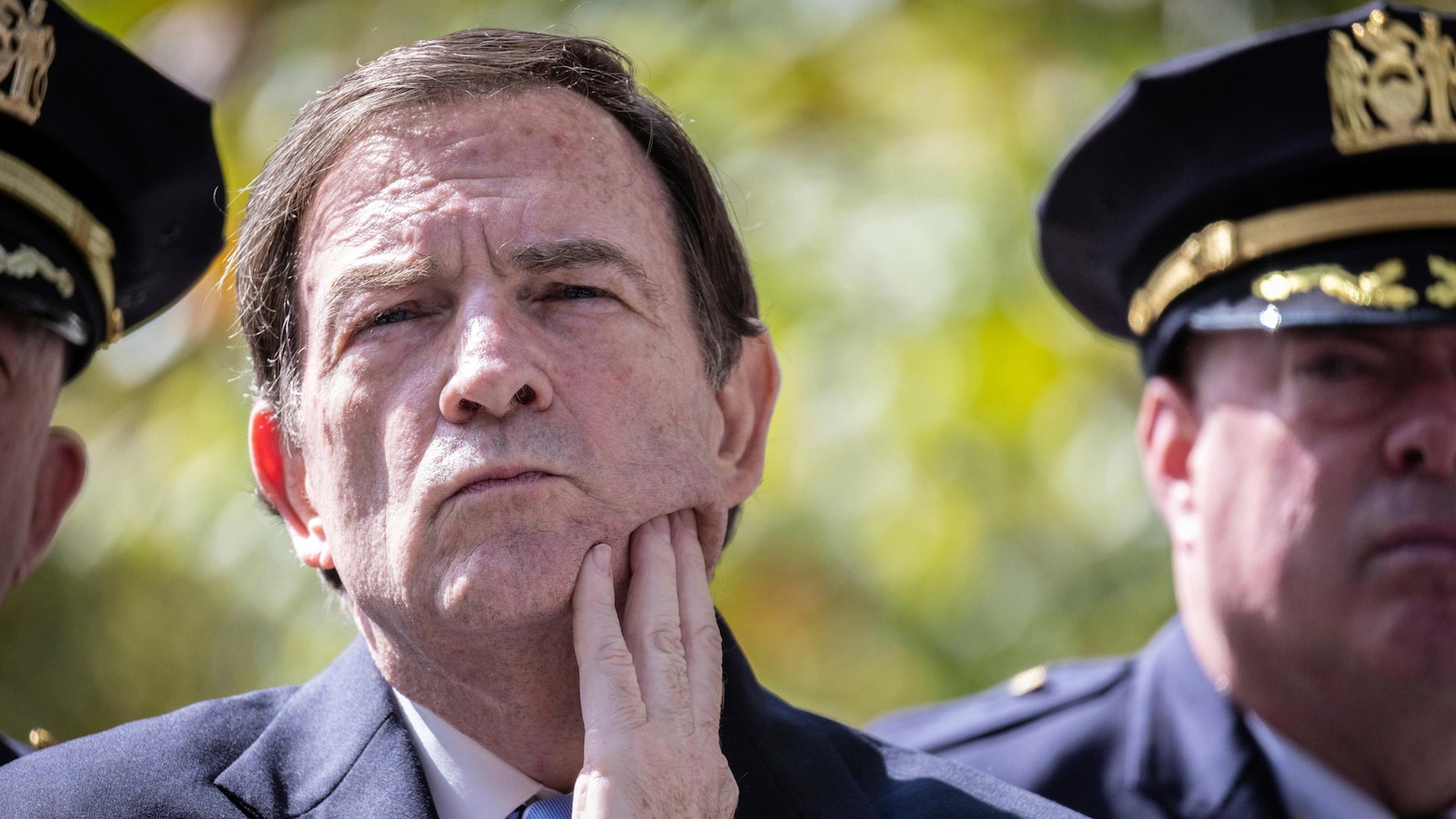
SEATTLE — Dan Evans, a popular three-term Republican governor of Washington state who went on to serve in the U.S. Senate before leaving in frustration because he felt the chamber was too rancorous and tedious, has died. He was 98.
Evans died Friday, according to the University of Washington, where he had served as a regent and where the Daniel J. Evans School of Public Policy and Governance bears his name.
“Dan Evans was an honorable, independent-minded public servant who put Washington state first and dedicated his life to protecting and investing in the places and people in our state,” Democratic U.S. Sen. Patty Murray said Saturday in a statement. “We were lucky to have him — and I have no doubt his legacy will live on for generations to come.”
Evans was a dominant force in Washington politics for decades and, until current Gov. Jay Inslee, he was the only person to be elected governor three times. In a statement posted to the social platform X, the Democrat said it was difficult to think of another resident who had such a positive impact on so many aspects of the state.
“We all, no matter our party, can feel fortunate for the progress he led during each of his three terms as governor,” Inslee said.
Born in 1925 in Seattle, Evans was a civil engineer before entering politics. He was elected to the state Legislature in 1956 and won the governorship in 1964, beating incumbent two-term Democrat Albert D. Rosellini and prevailing in a bad year for his fellow Republicans, one which saw President Lyndon Johnson soundly defeat the GOP’s Barry Goldwater.
Known as a moderate to liberal Republican, the avid outdoorsman helped add new recreation and park areas in the state and supported clean air and water legislation. He created the nation’s first state Department of Ecology, which President Richard Nixon used as a model for the Environmental Protection Agency.
Evans also unsuccessfully pushed to create a state income tax. He opted not to run for a fourth term.
“His legacy of coming together for the greater good, despite party lines, has inspired and will continue to inspire public servants and the Evans School community,” Jodi Sandfort, the school’s dean, said in a statement.
Sandfort recalled a quote from Evans: “Accomplishing good things takes bipartisan effort, because often what we’re trying to accomplish isn’t partisan.”
After leaving the governor’s mansion in 1977, Evans stayed in Olympia, serving as president of The Evergreen State College. Evans had helped create the state school when he signed an act authorizing the liberal arts college, and as governor he also backed founding the state’s community college system.
He built a national profile during his time leading the state and was the keynote speaker at the 1968 National Republican Convention. He was mentioned as a possible running mate for President Gerald Ford in 1976. Never a fan of Ronald Reagan, Evans supported Ford in 1976 and initially backed George H.W. Bush in 1980.
As a popular Republican in a predominantly Democratic state, it seemed that Evans would be a shoe-in had he decided to run for the U.S. Senate. He frequently spurned such talk, saying in 1972 that “I don’t like Washington, D.C., very well … and I could not stand to be in the Senate.”
However, in 1983 Democratic Sen. Henry “Scoop” Jackson died in office, and Evans accepted an appointment to serve out his term. Evans opted not to stand for election in 1988, citing the “tediousness of getting decisions made.” At the time he said he was looking forward to returning home to enjoy the outdoors.
In later years Evans served as a regent at the University of Washington, his alma mater. He also served on many nonprofit and corporate boards.
“Dad lived an exceptionally full life,” his sons — Dan Jr., Mark and Bruce Evans — said in a statement quoted by The Seattle Times. “Whether serving in public office, working to improve higher education, mentoring aspiring public servants … he just kept signing up for stuff right until the end. He touched a lot of lives. And he did this without sacrificing family.”
Evans’ wife, Nancy Bell Evans, died in January at age 90.
Former Republican Governor of Washington and US Senator, Dan Evans, passed away at the age of 98 on July 21, 2020. Evans was a beloved figure in Washington state politics, known for his bipartisan approach and dedication to public service.
Born in Seattle in 1925, Evans served in the US Navy during World War II before attending the University of Washington, where he earned a degree in engineering. He began his political career in the Washington State House of Representatives in 1956 and went on to serve as Governor from 1965 to 1977.
During his time as Governor, Evans focused on environmental conservation, education reform, and transportation infrastructure. He was instrumental in the creation of the state’s Department of Ecology and the establishment of the Washington State Park System. He also worked to improve the state’s education system, implementing reforms that are still in place today.
In 1983, Evans was appointed to fill a vacant US Senate seat and went on to win reelection in 1984. During his time in the Senate, he continued to advocate for bipartisan cooperation and worked on a variety of issues, including environmental protection, healthcare reform, and fiscal responsibility.
Evans was known for his integrity, honesty, and commitment to serving the people of Washington state. He was widely respected by both Democrats and Republicans for his willingness to reach across the aisle and find common ground on important issues.
In a statement following his passing, current Washington Governor Jay Inslee praised Evans as a “true statesman” and a “giant of Washington state politics.” He noted that Evans’ legacy will live on through his many contributions to the state and the country.
Evans’ passing marks the end of an era in Washington state politics. He will be remembered as a dedicated public servant who worked tirelessly to improve the lives of his fellow citizens. His legacy will continue to inspire future generations of leaders to follow in his footsteps and work towards a better, more inclusive society.


